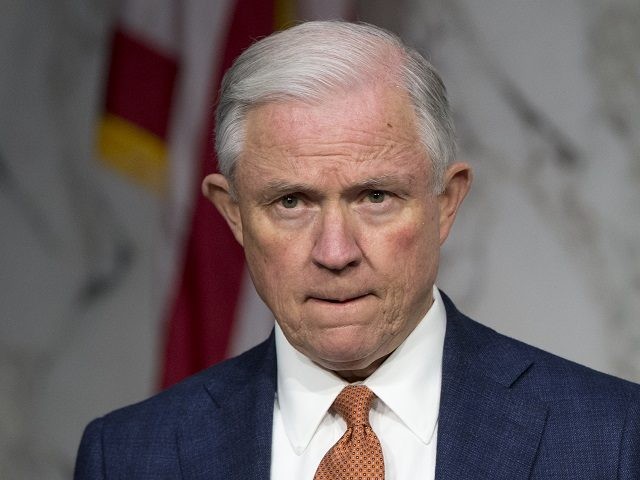Alabama Republican Sen. Jeff Sessions criticized right-leaning organizations pushing the prison sentencing reduction bill, The Sentencing Reform and Corrections Bill of 2015 (SRCA), on Sunday, calling some “shell groups” helping the Obama administration empty federal prisons.
“Deep-pocketed special interests in Washington are spending millions through newly-created shell groups trying to convince Republican lawmakers to support President Obama’s legacy item — more leniency for dangerous criminals,” he said in a statement.
Sentencing reductions are backed by a bipartisan coalition, including some that seemingly popped up overnight after a group of senators including Iowa Republican Chuck Grassley introduced it on October 1. The libertarian-leaning Charles Koch Institute has praised the U.S. Justice Action Network, which registered as a new lobbying firm less than one week after the SRCA’s introduction, for example.
Other conservative groups support the bill. A statement emailed by the Justice Action Network quoted Grover Norquist, President of Americans for Tax Reform; Timothy Head, Executive Director of the Faith and Freedom Coalition; Adam Brandon, President of FreedomWorks; and Marc Levin, Policy Director of Right on Crime, as saying: “In recent weeks, a number of prominent, but isolated voices have suggested that now is not the time for criminal justice reform, that continuing the failed policies of the past is enough. But this is not what America wants.”
The Koch Brothers are strong advocates of “sentencing reform” and have rallied conservative groups together with liberal ones — while pouring millions into such policy initiatives as slashing mandatory minimum sentences for federal inmates. Charles Koch also told ABC News that “it’s possible” that seeing soft-on-crime Hillary Clinton in the White House would be better than electing a Republican.
“They in no way represent the conservative movement. And they certainly do not represent the interests of everyday Americans, crime victims, and law enforcement officers who will pay the cost of the crime increases and the disorder that such ‘reform’ can trigger,” Sessions continued. “Conservatives, the proud and true defenders of law and order, must continue to protect the safety of law-abiding citizens. This is a core function of government. Theorists who believe further reducing penalties for the serious criminals prosecuted in federal courts will have no costs are just wrong.”
“Federally convicted criminals are generally serious criminals, kingpins, cartel members, and non-citizens. The federal prison population is already falling rapidly and dangerously,” Sessions said. He further explained the reasoning behind minimum mandatory sentences:
The last bulwark against liberal federal judges is the already modified sentencing guidelines. As serious crime starts to rise, this sentencing floor should not be further eroded. The purpose and good effect of minimum mandatory sentences is to ensure that serious crimes, and serious criminals, objectively evaluated, get at least certain minimum sentences. This is preferable to randomness and has proven to reduce crime. Now is the time to make our most vulnerable communities safer — allowing schools and families and commerce to thrive in peace – not to increase early releases of dangerous federal felons.
Sessions hosted a May 11 Capitol Hill press conference with Republicans and law enforcement officers opposed to the SRCA and its rollbacks, telling reporters “it would drastically reduce mandatory minimum sentences for all drug traffickers, even those who are armed and traffic in dangerous drugs like heroin, and provide for the early release of dangerous drug felons currently incarcerated in federal prison.” Similarly, Louisiana Sen. David Vitter said that federal prosecutors target “violent, serious operations” manufacturing and dealing addictive, deadly drugs.
Existing sentencing guidelines will free nearly a quarter of the federal prison population without the SRCA’s help, Vitter added: “[M]ultiple rounds of reductions of sentences in the federal system, and this including the latest revision of sentencing guidelines downward, is going to release 46,000 federal prisoners over time. Now, that’s 46,000 out of a present total of about a 196,000, including about 25 percent. That is a major, major downsizing of the federal prison population of the present system that’s going on right now, without any of this legislation.”

COMMENTS
Please let us know if you're having issues with commenting.